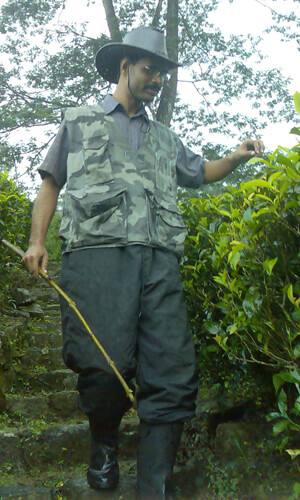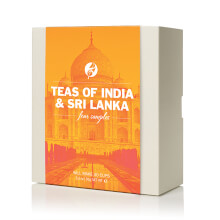94
ceylon sonata
based on 2496 reviews
Save time by automating shipments of your best-selling teas. Pause or cancel anytime.
Please select size:
Please select size:
LOOSE LEAF TEA
sample
makes 10 cups
$4
Looking for Business pricing?
Shopping for yourself?
please consider our retail website.
Ceylon Sonata in bulk available for wholesale. Classic black tea from Sri Lanka. In colonial times, this island nation was known as Ceylon. This name is still used to describe all teas grown here. Ceylon tea is bright and lively, medium body and delightfully tangy. Our 'Ceylon Sonata' is a full leaf OP grade from the renowned Kenilworth Estate, located in Sri Lanka's Kandy region. Fresh, citrusy aroma, sweet juicy notes like mandarin peel or grapefruit, refreshing texture and balanced astringency. The perfect afternoon tea.
This tea contains a high level of caffeine | Steep at 212° for 3-5 minutes.
Customer Reviews (2496)

Fresh From Origin
The first tea plant was smuggled into Sri Lanka (formerly known as Ceylon) in 1824. While it was not intended for commercial uses at the time, it wasn't long before more plants arrived, and by 1867, the first tea plantation was founded by Scotsman James Taylor. By the 1880s, following a severe blight in the 1870s, nearly all coffee plantations had converted to tea. Now, Sri Lanka is one of the world's largest producers of tea, with six main growing regions across several elevations and growing conditions.Single Serve Portions

96 count box @
21¢ per cup
$20
Part of teas of India and Sri Lanka sampler
Explore a variety of teas with our popular sampler set. Four teas included are: assam melody, ceylon sonata, darjeeling sungma summer, irish breakfast,
6 Indian and Sri Lankan - 4 samples @
$7
Meet our ceylon sonata farmer, Archiemuthu Satheskumar
To ensure the best quality and value, we import our teas directly from the countries in which they are grown, working closely with the farmers who tender them. Our Roots Campaign connects our customers with the rich stories and the farmers behind some of our most popular teas.
How long have you been growing tea?
“Straight from school, I joined the industry in year 1995 where I have been working for the last 14 years in the existing tea plantation of Kenilworth Estate, Ginigathena under Ms. Watawala Plantations PLC.”
What got you started in the Tea industry?
“Since the quality of Sri Lankan tea, has a global recognition for competitive performance and reputation. I decided, this is the best opportunity to serve the country as this is the back bone of Sri Lankan economy also I experienced the environment and culture of the Tea since my child hood.”
Can you describe a typical day out in the field. How many hours would that be?
“Being a Hindu, I start my day by worshiping god and starting from the muster at 6.30 a.m. allocating workers to achieve days target when & where it requires. Thereafter, I spend more time in the field supervising all agricultural practices and checking the quality of the raw material [Green leaf]. Motivating a work force of approximately 500 workers, whom sometimes encounter heavy rains, blowing, cold climatic conditions take a fair amount of my time. The work involving supervision could take a minimum of 10 -12 hours a day on a 6 day week.”

